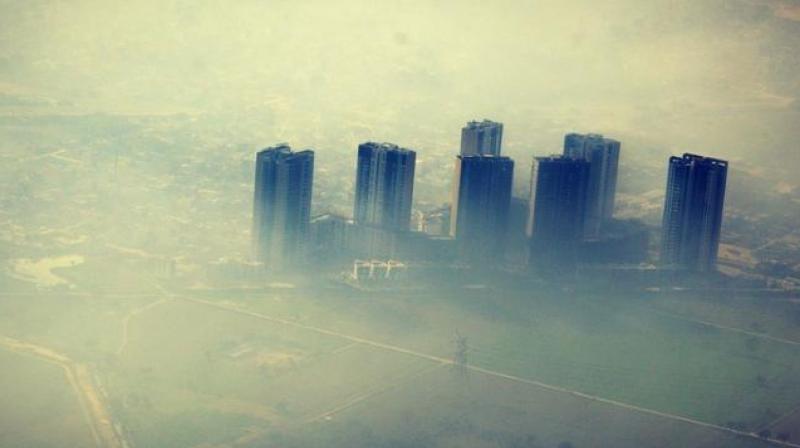Hyderabad: Kids living in urban areas most hit by air pollution

Hyderabad: A study on how air pollution affects children shows that it affects them severely because they have more lung surface compared to their body weight. The study of 1,000 children who frequented respiratory departments of private and government hospitals in the state shows an increase in respiratory ailments as increasing pollution increases the intake of carbon monoxide in children. Children living in urban areas are more affected by air pollution than those living in rural areas, revealed the study.
Dr Subhakar Kandi, professor and head of the department of pulmonary medicine, said the study was conducted on school going children up to 12 years in urban and rural areas.
“The incidence of asthma in rural areas is 10 to 12 per cent whereas in urban areas in school going children is around 20 per cent. The reason is that the schools are located far away from their homes. The child has to travel 15 to 20 km in urban areas to reach school. Most of them take school buses which run on diesel and diesel is ten times more allergic than petrol,” Dr Kandi explained.
Childhood asthma is more severe than asthma in adults. This is because a child’s immune system is developing and it is exposed to toxins not only in the air but also in food.
Dr Preethi Sharma, senior paediatrician, says air pollution increases the risk of allergies and asthma. “Normally, oxygen goes and binds to haemoglobin that is converted into oxyhaemoglobin. If the air pollution is high, it means carbon monoxide levels are very high in the pollutant. We are inhaling carbon monoxide which has more affinity to haemoglobin than to oxygen. It binds to the haemoglobin and converts it into carboxyhemoglobin. The carboxyhemoglobin will produce effects like hypertension, cardiac strokes and other issues,” Dr Sharma said. Continuous exposure to air pollution might also lead to eye problems.
The problem is more severe in winter as pollution levels are always high because of the burning of coal to keep our bodies warm. Diesel is another culprit.

